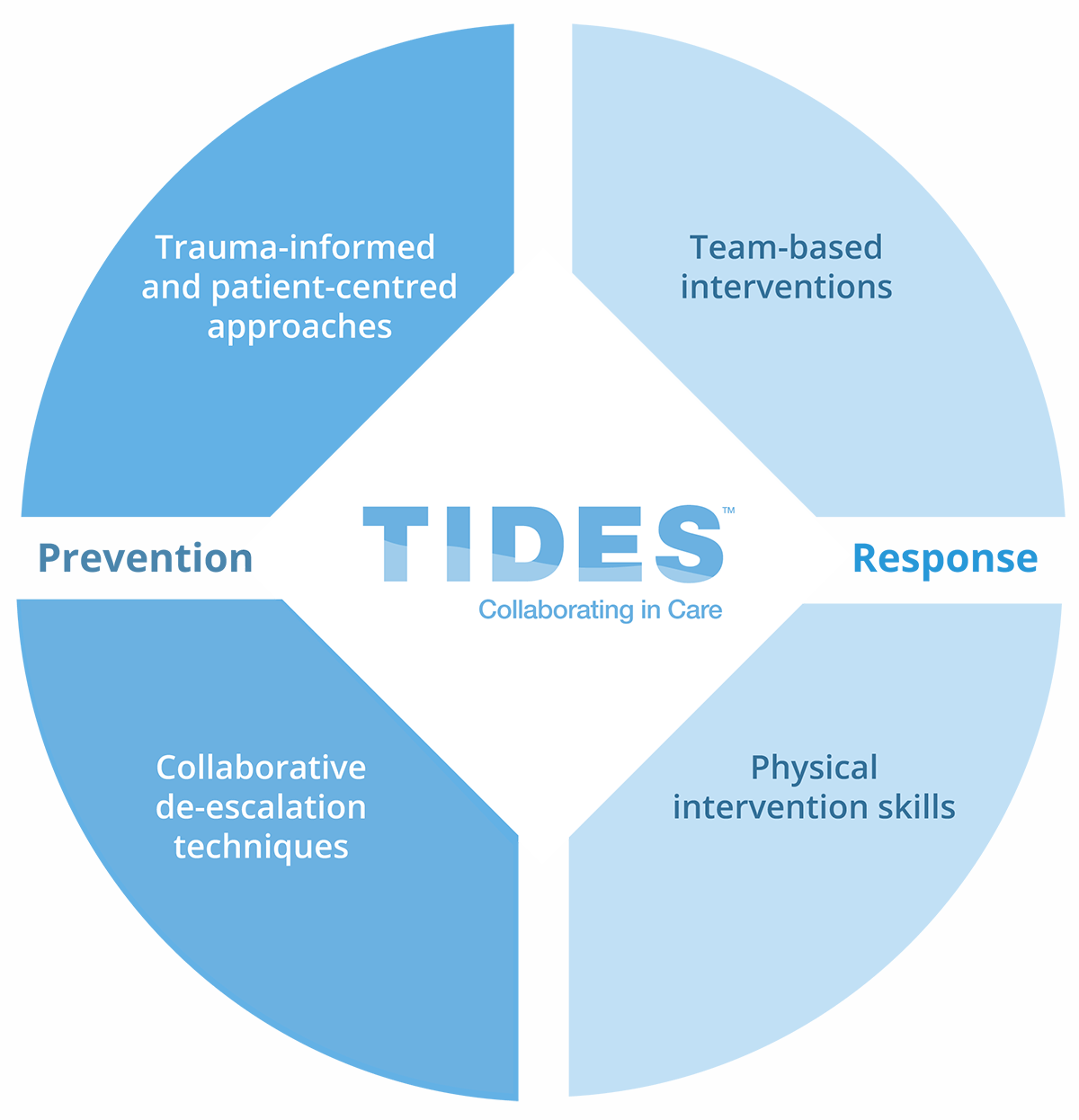TIDES establishes knowledge around prevention (i.e., ways to keep emergencies from happening), and it is based on being trauma-informed and person-centered.
This part of TIDES training aims to build strong rapport between staff and the people they serve as well as among teams. TIDES learners cover several topics to ensure they can respond to emergency situations with empathy and respect:
- Develop assessment skills.
- Examine the factors affecting escalation.
- Explore ways to mitigate risks.
- Practice methods of dynamic communication.
In the context of prevention, TIDES includes training around two key areas: collaborative de-escalation techniques, and trauma-informed and patient-centred approaches.
Collaborative de-escalation techniques
Collaborative communication: Provide a guide for communicating with people (known as a framework of engagement) when planning for interventions during rapidly changing situations.
Responding in the moment: Explore strategies and tools to help with self-awareness and self-management during high-stress situations.
Trauma-informed and patient-centred approaches
- Environmental assessments: Study the places where people work and identify potential safety risks.
- Person-centered, trauma-informed approaches: Follow principles of partnership, respect and inclusion.
- Practice enhancements: Provide 10 ways to improve collaboration for safety in daily work.
- Wellness and self-care: Think about long-term ways to build a person’s ability to cope with workplace stress.

